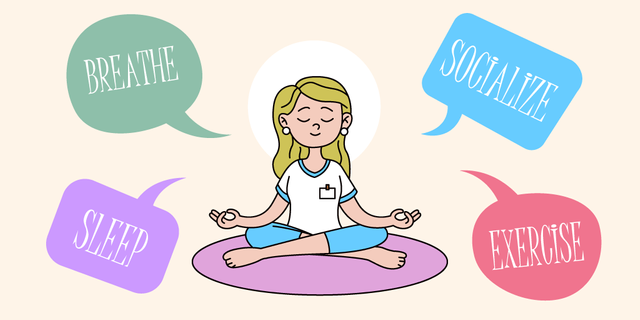
- Eat a healthy diet.
This means eating plenty of fruits, vegetables, and whole grains, and limiting processed foods, sugary drinks, and unhealthy fats. A healthy diet will help you to control your calorie intake and get the nutrients you need.

- Be physically active.
Aim for at least 150 minutes of moderate-intensity aerobic activity or 75 minutes of vigorous-intensity aerobic activity each week. You should also do muscle-strengthening activities that work all major muscle groups on two or more days a week.

- Get enough sleep.
Most adults need 7-8 hours of sleep per night. When you don't get enough sleep, your body produces more of the stress hormone cortisol, which can increase your appetite and lead to weight gain.

- Manage stress.
Stress can lead to unhealthy eating habits and weight gain. Find healthy ways to manage stress, such as exercise, yoga, meditation, or spending time in nature.

- Make sustainable changes.
Don't try to change everything at once. Start by making small changes to your diet and exercise habits, and gradually build over time.
Here are some additional tips for reducing obesity:
Make healthy food choices convenient. Keep fruits, vegetables, and whole grains on hand for quick and easy snacks and meals.

Find activities that you enjoy
You're more likely to stick with an exercise routine if you're doing something that you enjoy.
Set realistic goals.
Don't try to lose too much weight too quickly. Aim for losing 1-2 pounds per week.
Get support from others.
Find friends or family members who are also trying to reduce obesity. You can support each other and stay motivated.
If you have struggled to reduce obesity on your own, talk to your doctor. They can help you develop a personalized plan that is right for you.